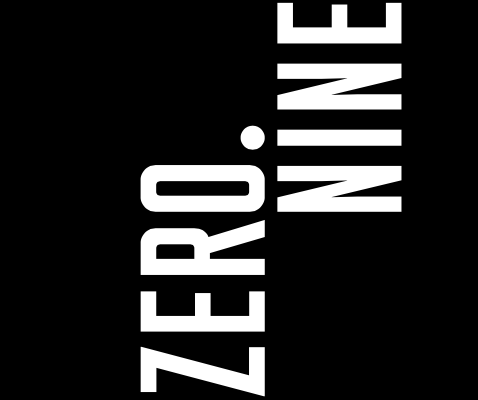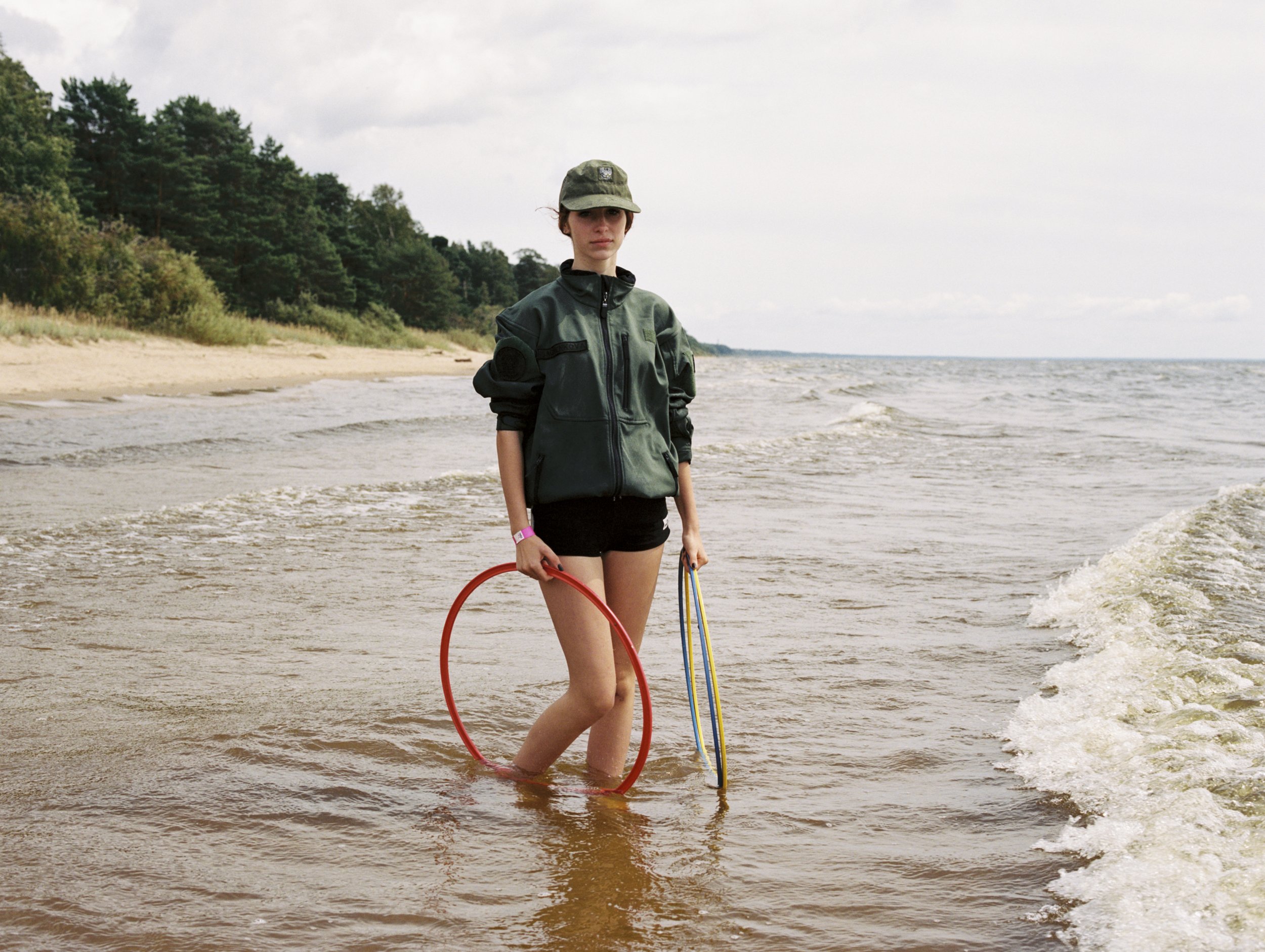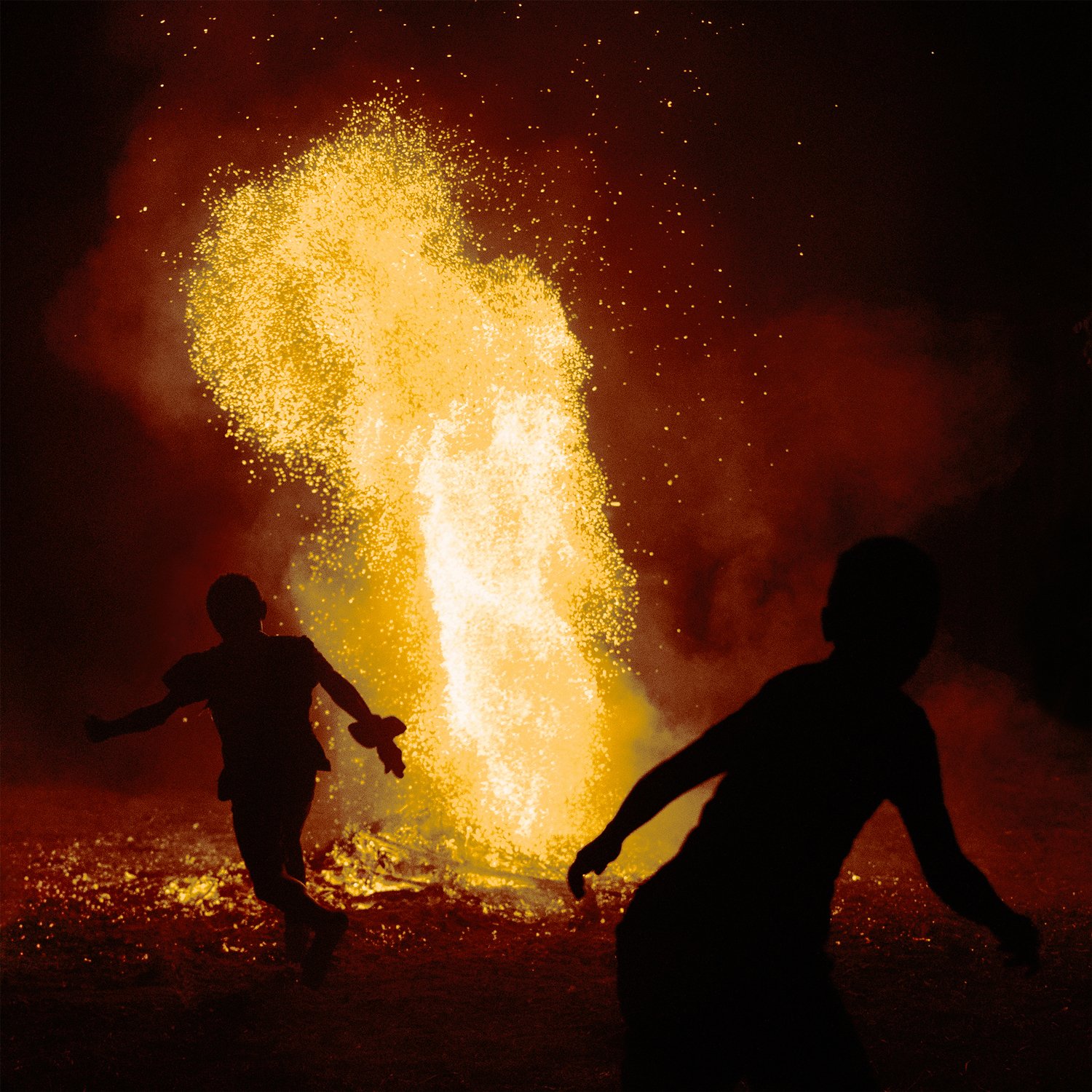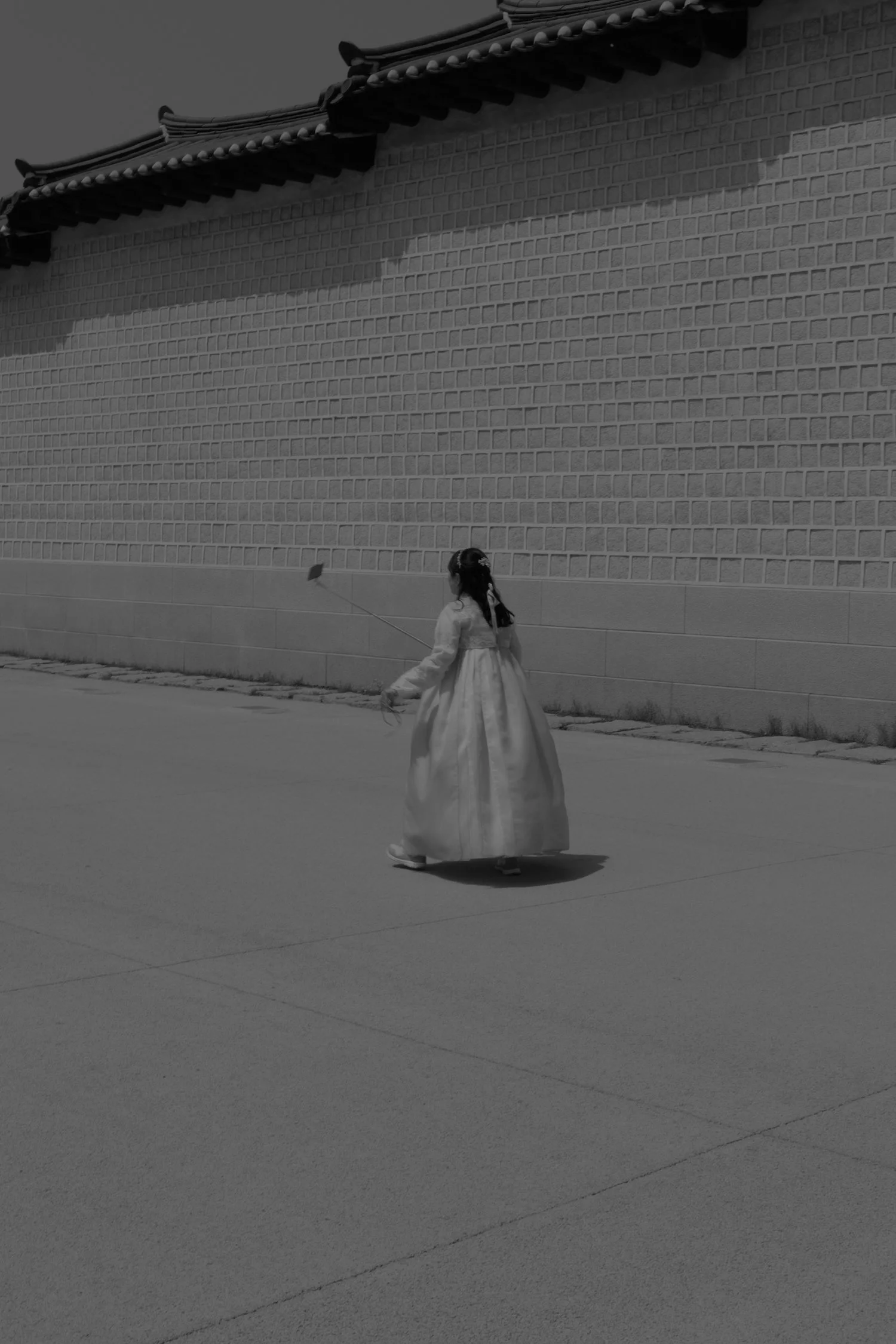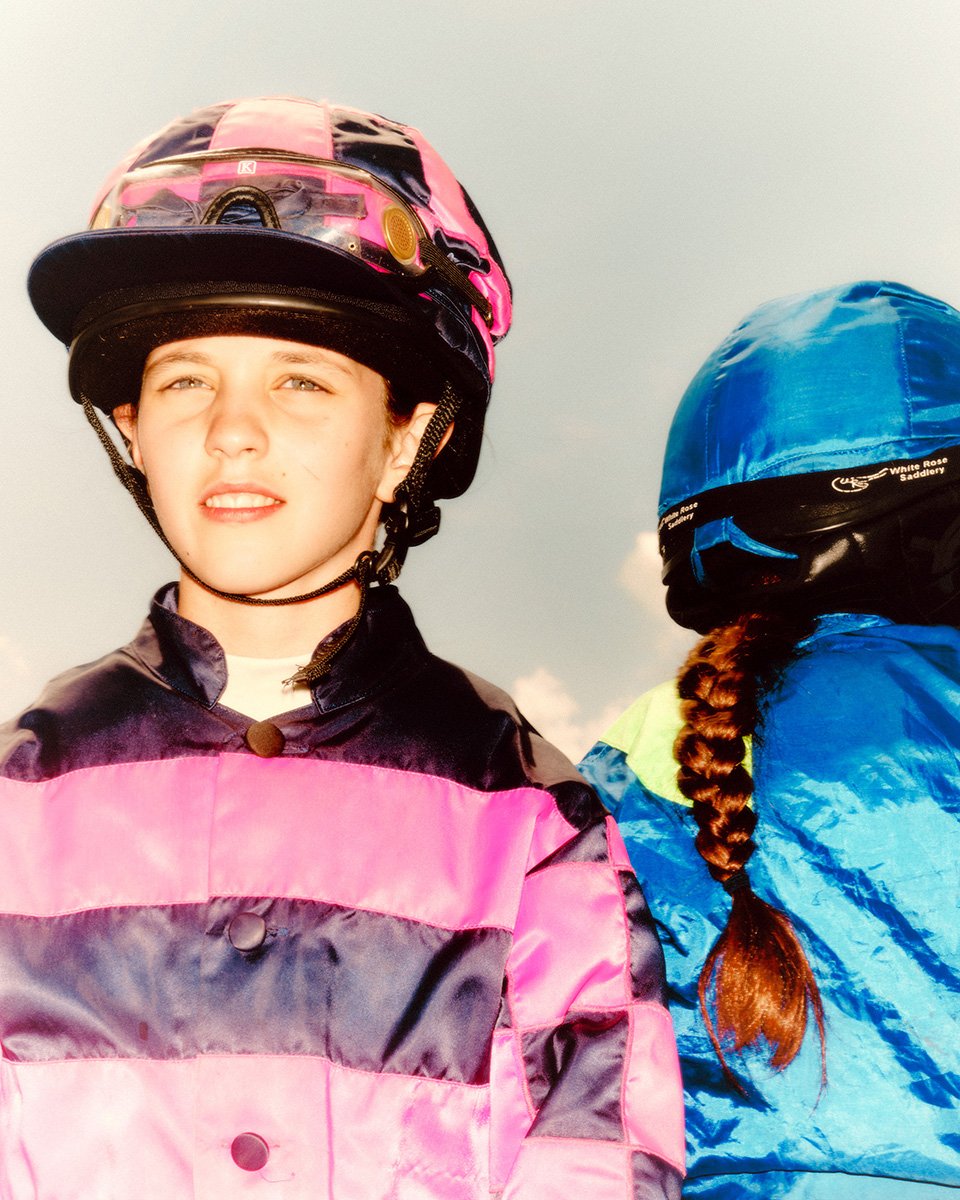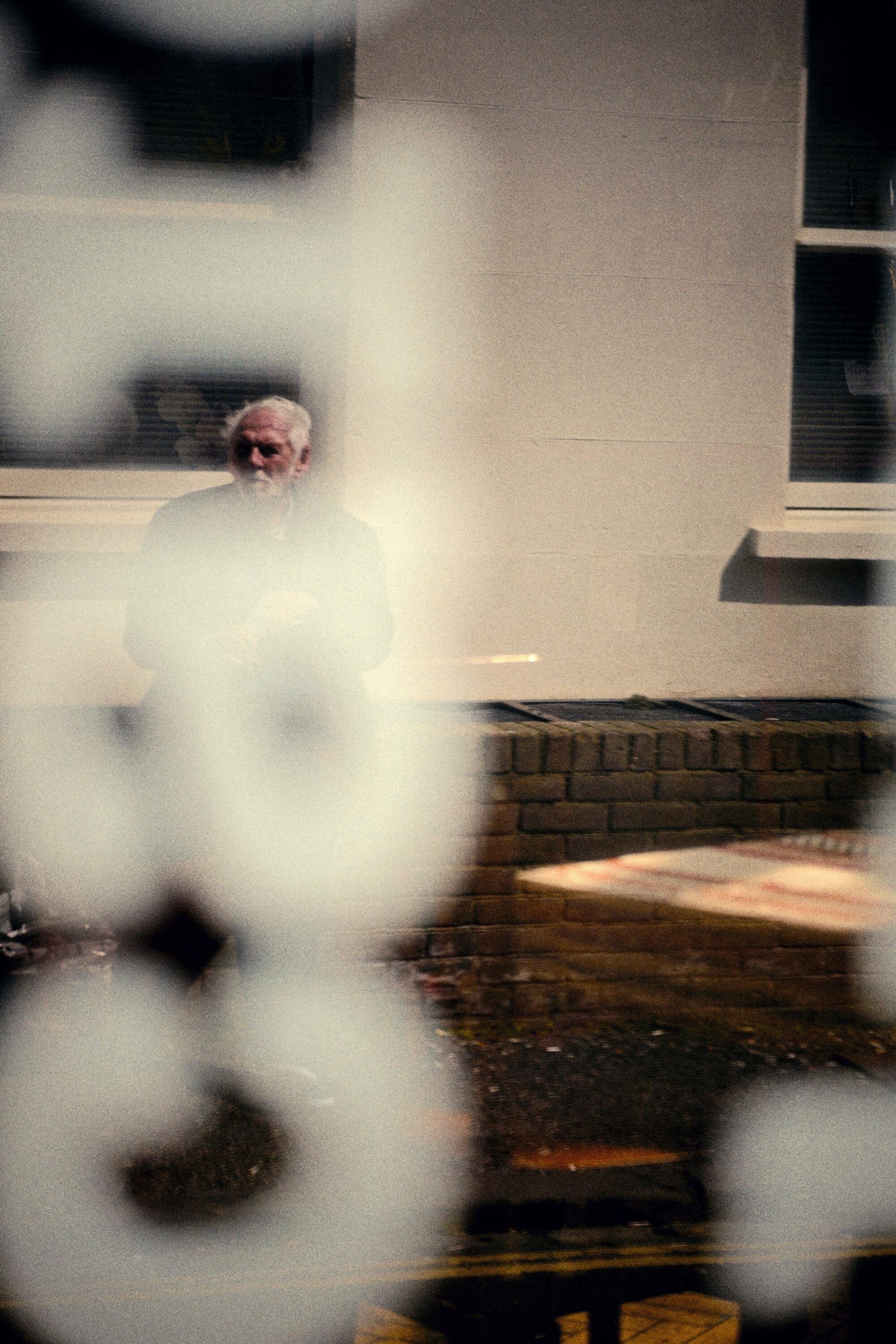Everything is going to be Okay
GoGo Penguin is a Manchester-based piano trio consisting of Chris Illingworth (piano), Nick Blacka (double bass), and Jon Scott (drums). The "acoustic-electronica" band just released a new album “Everything Is Going to Be OK”. They talked to us about their influences, process, grieving and their upcoming tour!
Interview Daniel Vildósola Photography JC Verona Grooming Ben Grace Set design MJ Tollo Lettering Ignacio CascoThe band was formed in 2012 and gained recognition when their sophomore album, v2.0, was nominated for the Mercury Music Prize in 2014. They signed to Blue Note Records in 2016 and released several acclaimed albums, including 'Man Made Object', 'A Humdrum Star', and 'GoGo Penguin'. The band's style, which they call "acoustic-electronica", blends classical influences, break-beats, jazz, minimalist piano melodies, powerful basslines, and drums inspired by electronica and anthemic riffs. They have toured extensively, performing at major international festivals such as Coachella, Outside Lands, and Montreal Jazz Festival, and have sold-out venues around the world. In 2015, they debuted their original score for the cult-film 'Koyaanisqatsi' to enthusiastic audiences worldwide.
You guys have been incredibly productive as a band, with six full-length albums and four EPs. It seems like you don't take much time off!
We definitely hit the ground running after V 2.0 was shortlisted for the Mercury Prize. We were hungry for success and played an insane number of gigs. Some fans even messaged us saying we looked exhausted. But we were always up for writing and working on new material.
The pandemic forced us to slow down, which was a blessing in disguise…
We were able to take stock of the changes we needed to make, especially after Rob left the band. Initially, we weren't sure if we could continue, but we were determined to make it happen.
When Jon joined the band, it marked a new chapter for us. We embraced more electronic elements in our music and started experimenting with new sounds. The Moog Grandmother has been a fun addition to our gear. We've always had some electronic aspects to our sound, but now we're taking more risks and trying new things. It feels like we've stepped up and are really pushing ourselves creatively.
Jon, can you tell us about your "sonic manifesto" when you joined the band?
Jon: I've always been influenced by electronic music, and with the way the drums are produced, you can have really intricate, busy drum parts, but the sound can be very small. So there's still a lot of frequency, space for the rest of the instruments. Or you can go the other way and have a huge sound, but a simple part. So, it's about designing the way the drum sounds and then creating the parts with respect to that. This is something we have in mind from the beginning of the production process, working with Joe Riser, our sound engineer and producer. Joe is like the hidden fourth member of the band and has been with us since 52.0. We're lucky to have him, and he's great to work with from the start of a tune, where we can start designing the production value from the beginning.
What is your writing process like?
Our writing process is very much a group effort. No one is writing out parts for anyone else. It used to be a bit more like that depending on the tune, but it has changed recently. Two of us live in Manchester while Jon is based in London, but we can still send each other stuff, and then we come together during blocked-out periods to work on stuff together.
Musically, there is a lot to talk about with your music. People often use the term "jazz" to describe it. You and your bandmates are all trained in high art forms such as jazz and classical music, and this is evident in the technical proficiency of your music. You mentioned going down the "jazz rabbit hole" for a long time. Did you find your way back out?
Thankfully, yes. But it's a beautiful hole to crawl into, isn't it?
Press releases and reviews often describe your music as jazz, and it is part of the conversation. Is it simply because of the instrumentation that people say you're a jazz group, or is there something more fundamental to it?
It really depends on your definition of jazz. We are very loosely in the category of jazz, if at all. It is mainly the instrumentation that has led people to categorize us as jazz, although there are still elements of improvisation in our live performances.
Our initial starting point may have been from more of a jazz perspective, particularly on our first album and V2.0, but we have since gravitated away from that. Each of us has had different experiences with jazz, with myself having the least positive experience with it. It just didn't feel like a fit in that world. However, our backgrounds in jazz and classical training have influenced our music and have helped shape it into what it is now.
The piano trio was the starting point for us, and the instrumentation was what we had to work with. The trio is a strong tradition in jazz, and it's hard to shake that foundation once it's there.
However, we try to draw from a variety of other influences as well.
We like to think of ourselves as a gateway drug to harder jazz for people who are just being introduced to these instruments. For many, seeing us play live may be their first introduction to seeing these instruments on stage.
“Obviously, we don't know that everything's gonna be okay, but it's just that idea of we've kind of got each other, and we're gonna try and get through it.”
"I think it's pretty special what you've created with this crossover space, as it appeals to both jazz aficionados and fans of more electronically-influenced music like Fortet or Mouse on the Keys. The way these genres cross-pollinate is very cool.”
It could have backfired though! (Laughs)
You have said that Shostakovich is also a big influence. What is it about his music that has influenced Gogo Penguin?
"Yeah, I studied classical music for many years and played in piano, violin, and cello trios for a long time. I enjoyed finding any excuse to be in a band. The tonal ambivalence and unique forms of Shostakovich's music really appeal to me. Rob was also interested in him and mentioned him as an influence. I've got some of his work on vinyl now, thanks to my partner's grandfather who was obsessed with him.
Speaking of albums. Do you guys remember your first albums?
Chris: I remember buying Mezzanine by Massive Attack and Dookie by Green Day on the same day.
Nick: Mine was probably Hot Space by Queen, which I liked for the colorful cover when I was about nine.
Jon: The first album I bought with my own money was the first Rage Against the Machine album on tape, but before that, I had some AC/DC and Iron Maiden records when I was six.”
Your new record, Everything Is Going To Be Okay, is said to be was born during a time of turbulence and loss. Given the album and song titles, would you say you say it's a concept album with themes of grief and hardship?
Nick: No, not really. We've said in the past that a band making an album is just a snapshot of who they are at that moment. So you can't deny the things that are going on in your life at the same time. For me, before the album, I lost my mother. And then when we were making the album, I lost my brother as well. So obviously that's a big part of my life at that moment. But it's not just me in the band, is it? It's all three of us. But these guys are aware of that.
Thematically, it was more everything that had happened - the lockdowns, losing a band member, then losing loved ones, but then coming out the other side and gaining a band member. We got Jon on board, which is great. Chris lost his grandmother during that time. We're all going through all these things, and I think the main concept was everything's gonna be okay. That feeling of hope, really. That togetherness. Obviously, we don't know that everything's gonna be okay, but it's just that idea of we've kind of got each other, and we're gonna try and get through it.
It's definitely a part of all these experiences, and they happened simultaneously. You get a positive on the negative, and it's really odd. It's something that everyone experiences, so it's really relatable.
It's definitely a very odd experience to be in a position where you can go from feeling completely miserable and just wanted to stay in bed in the morning, to get to the studio, and things brightening up, and finding some positivity because the music's moving forward.
There's a track on the album called Sanctuary, and that is because that was our sanctuary. We were going in every day, and when Jon was coming up from London, we'd get into that space, and all that mattered was just let's play some music together, make some tunes. We're very lucky that we had that space to be able to do that and retreat, but also still have all those things that was going on around us and use them.
What is it like going from recording mode into live mode?
Actually, it's harder than ever now with the introduction of synths and electronics by Chris. I keep going to the studio and looking at the Euro rack and thinking, "I don't know what I'm doing, there are too many cables." But it's really exciting, and we've always enjoyed the feeling of trying stuff out and then thinking, "How do we make that live?" In the past, there was more consideration during the writing process on what we can pull off performing live. With this record, we just said, "Let's make a record, and we'll worry about that later." Now it's later, and it's definitely more of a challenge than ever, but I'm excited to get into that place of playing all this music that's quite different in a lot of senses to some of the other stuff, and feeling how that'll grow. It's exciting to think that we're gonna go and play it live instead of just having it on a CD.
What can you tell us about your upcoming tour?
Yes, we're starting with Roundhouse and ending at Fuji Rocks. We're also going to America first, doing some US and Canada dates, which is incredible. We love doing those and getting back out there. Then, we have New Century Hall in Manchester, which is a great venue. I've heard great things about it from my neighbors who keep going to gigs and telling me about how great it is. And then there's the Roundhouse, which is pretty special. We've done that quite a few times. We did the Mercury Prize there, and then we did our own headline gigs there. It's a very memorable place.
See you there!!
Check out their website for tour dates and to hear their new album.
Team credits
Interview Daniel Vildósola Photography JC Verona Grooming Ben Grace using Davines Set design MJ Tollo Lettering Ignacio Casco Many thanks to Wire Pr
